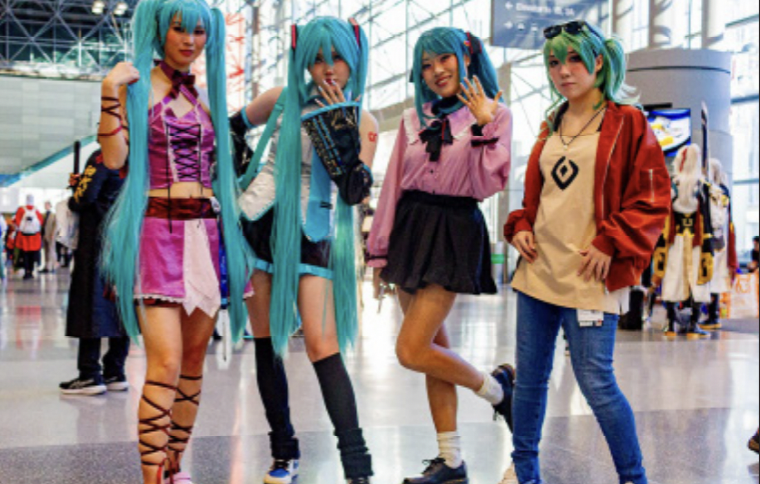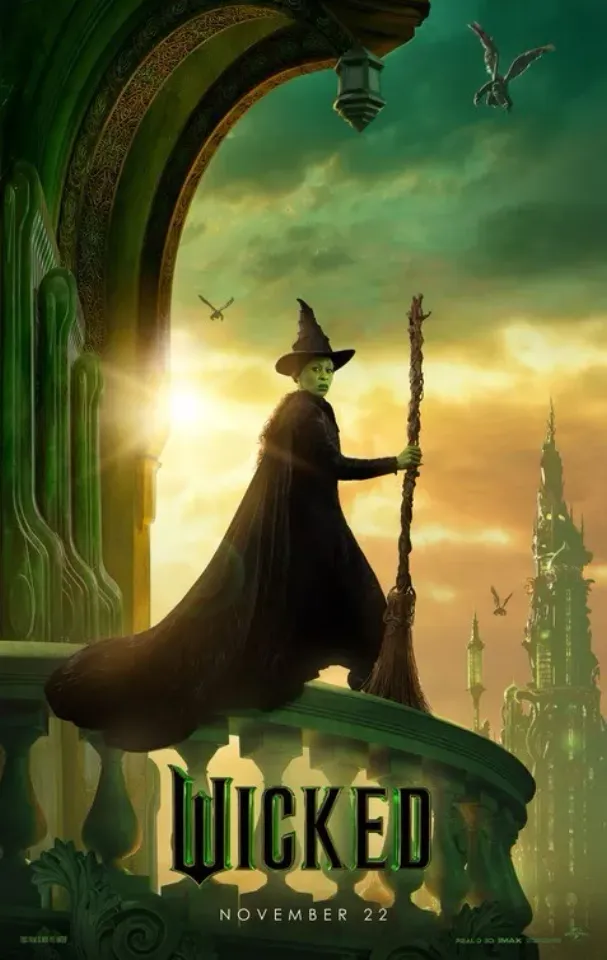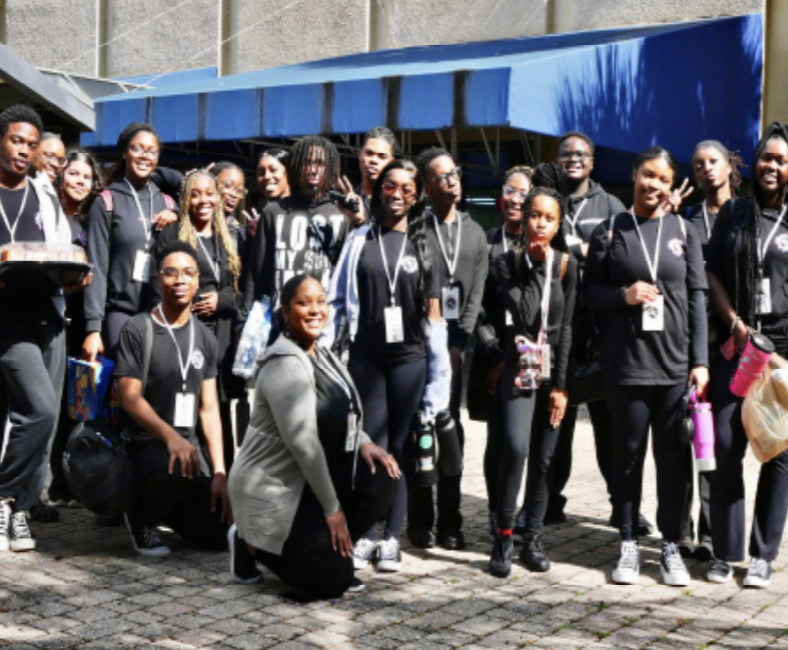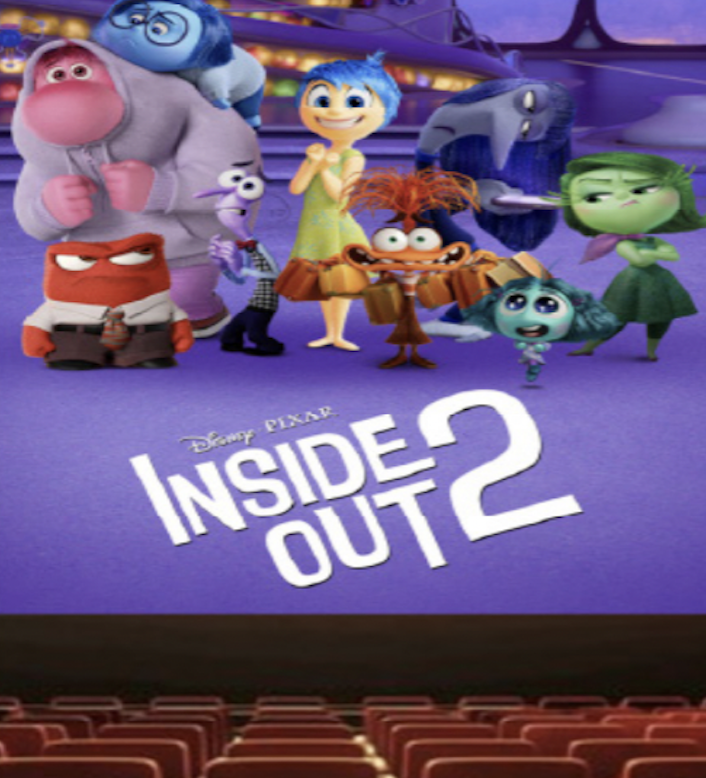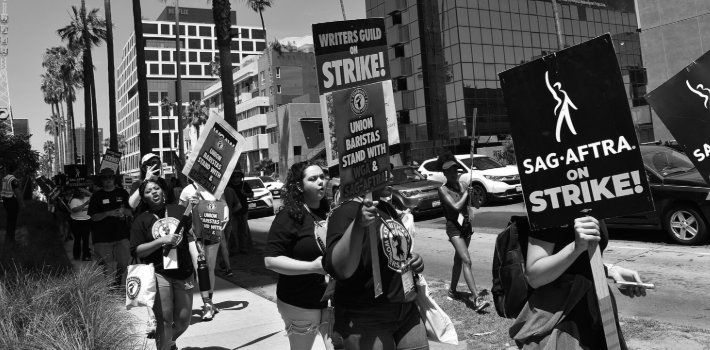Recently, the entertainment industry has been hit by dual strikes from the Writers Guild of America (WGA), and the Screen Actors Guild (SAG-AFTRA) for the first time since 1960.
Film production has slowed to a stop, with many shows and movies being delayed, devastating many fans.
One of the main reasons for the strikes are concerns over the use of Artificial Intelligence (AI) in film. The Alliance of Motion Picture and Television Producers (AMPTP) wants to be able to scan an actor’s image and use it forever in any scene they desire for half a day’s wages. They also want to be able to edit the main characters’ dialogue and create new scenes with them without their consent. The WGA is also concerned that studios will use AI to generate scripts, potentially killing off the screenwriting profession as a whole.
Another reason for the strikes is a lack of residual payments. These are paid to actors whenever the show they starred in runs on TV or whenever a DVD of the show is purchased. The system used to compensate actors generously, allowing the cast of “Friends” to make millions of dollars annually, a decade after the show ended. While this was an extreme case, actors on less popular shows could still make enough money on residuals to support themselves. However, the rise of streaming and the decline of TV have reversed this. While actors still get paid streaming residuals, the amount they get paid in them is not tied to the popularity of their show and is significantly smaller than TV or DVD residuals.
Chris Browning, who played a significant character in the movie “Bright,” which was watched by 11 million viewers during the first three days after it was released, only received $271 in residuals. The lack of residuals has placed a financial strain on actors, forcing many of them to get a second job, even while acting in extremely popular shows, which is what the cast of Netflix’s popular “Orange is the New Black” had to do.
These two reasons, compounded by the AMPTP’s refusal to address them in a way that satisfies the two unions, have led to strikes that have lasted the whole summer. These strikes have prevented shows from being produced, leading to new seasons of “Stranger Things,” “1923,” “American Dad,” “Jeopardy,” “Saturday Night Live” and many others being delayed. Tons of movies have met this same fate, with the “Avatar” and “Avengers” Phase 5 & 6 movies, “The Batman: Part II,” “Captain America: Brave New World,” “Daredevil: Born Again,” “Deadpool 3” and a great many more being delayed.
These delays have irked fans, including many students here at Krop.
“A few movies got delayed because of the strike,” sophomore Vincent Castillo said. “I was looking forward to the new ‘Spiderman’ movie, ‘Deadpool 3’ and some other Marvel movies, and the delays were disappointing.”
As a result of the delays, many students have searched for replacements to new releases.
“I’ve been rewatching ‘Stranger Things’ and Marvel movies.” sophomore Amir Rafael said.
Most students supported the strikers’ actions, however.
“I think it’s messed up what they’re doing to the writers. AI doesn’t have as much creativity as humans do.” senior Evan Seder said.
However, thankfully for the students, the strike seems to be coming towards an end. On Sept. 24, , the WGA and the AMPTP came to a preliminary agreement to end the strike, and the WGA members approved it, going back to work.
The agreement forbade companies from using AI to write scripts, and set up a viewership based system for streaming residuals, activating another source of income for the writers.
However, SAG-AFTRA is still on strike, and although negotiations initially started up, the AMPTP paused those negotiations, meaning the strikes will continue for the foreseeable future. As a result, most shows will not be able to start on their production, with the notable exceptions of shows such as Saturday Night Live, Jeopardy, and other game and late night comedy shows.
Even when shows do start production, however, the shows still need to be written and filmed, which will likely take a couple of months, forcing their fans to wait even longer. There is also a chance that some shows might be canceled so the studios can get back on schedule.
These strikes have also emboldened other unions to strike as well. Earlier this month, the United Auto Workers (UAW) striked, and back in the summer, United Parcel Service (UPS) workers threatened to strike, but agreed not to after being given a generous new contract.
These strikes have sent shocks through the entertainment industry, and the impacts of production delays could be felt for years to come, causing more frustration for fans.














